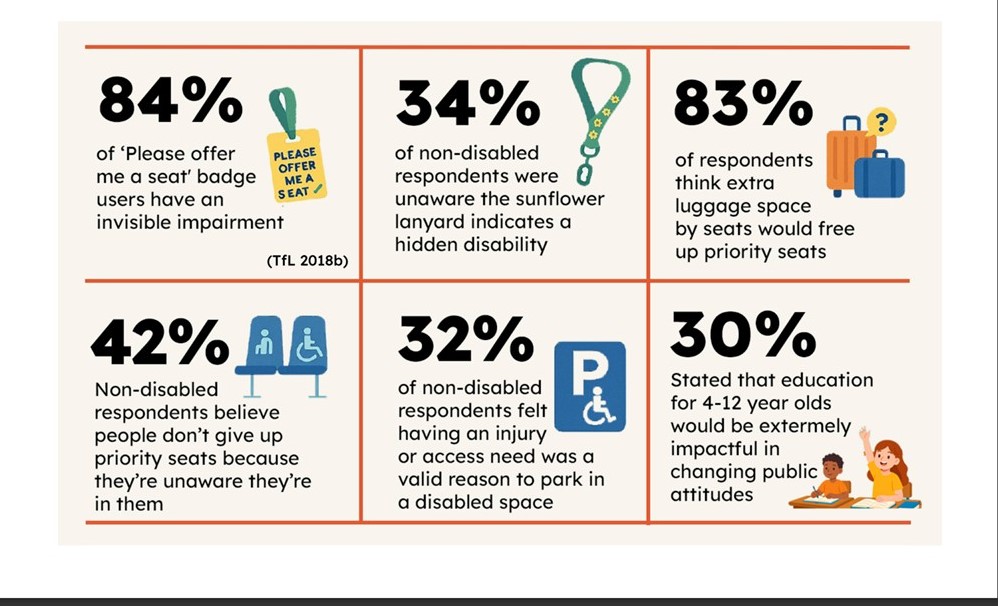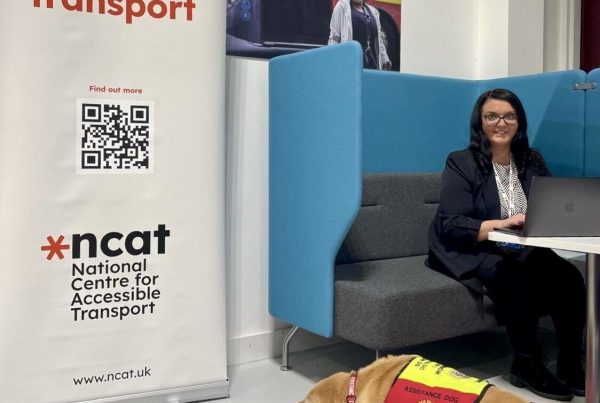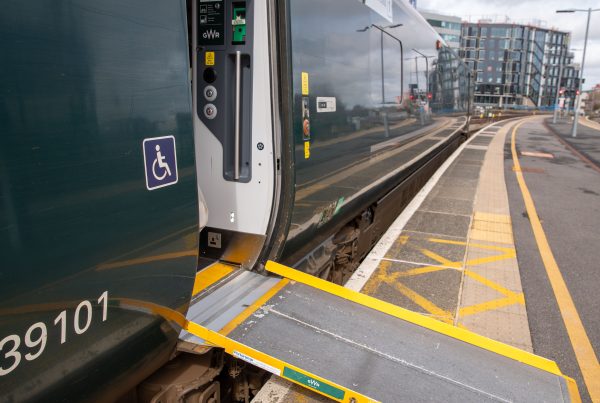
This week we have published, ‘Invisible Barriers’ , a new report which explores what interventions across the transport sector would have the biggest impact on improving public attitudes and behaviours, and consequently disabled people’s travel experiences.
What did we find?
• 59% of disabled people report experiencing negative attitudes while travelling; this rises to 86% for those with mental ill health.*
• 83% of non-disabled respondents said extra luggage space by seats would improve access to priority areas.
• 96% know what a Blue Badge is, but only 43% understand all its parking entitlements.
What did we do?
• Worked directly with disabled people using focus groups to determine solutions
• Surveyed 1,464 non-disabled people, to explore how education, design, and enforcement can shift attitudes.
Call To Action: What Can You Do?
Transport Industry: Increase luggage space to free up priority spaces and issue fines for Blue Badge Violations.
Public Sector: Promote inclusive education and impactful public campaigns using bold signage and audio cues, plus videos on social media and in transport settings
Researchers: Actively involve disabled people from the start of research
Individuals: Stay mindful and empathetic towards your fellow passengers
Transport providers, policymakers, and the public must work together to help remove invisible barriers and make travel truly inclusive.
Read the full report: Invisible Barriers – National Centre for Accessible Transport
*From Understanding and Identifying Barriers to Transport 2024


